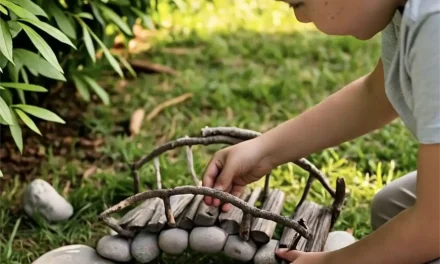
Modeling a Love for Learning: Think Out Loud with Math and Science Puzzles
W
hen you puzzle through a challenge aloud, your child sees how real thinking unfolds—trial, error, and all. That same spirit drove Enlightenment scientists as they tested ideas and argued their way toward insight. Verbalizing guesses invites your child into the joy of reasoning, building habits they’ll use in math classes, science labs, or everyday problem-solving. Unlike silent worksheets, spoken logic shows that answers unfold through steps, not shortcuts. With puzzles, games, or kits, they practice testing ideas and adjusting course. A weekly challenge, paired with a question like “What’s another way to solve it?” turns your table into a workshop of logic and curiosity.
One rainy afternoon, I asked, “How many apples fit in this bowl?” My son guessed by counting, my daughter by stacking. We debated, then shifted outside to test raindrop speed off the porch—“Why is it slower now?” Socks soaked, minds buzzing. Later, her drip-rate thinking helped her ace a math quiz, while he cracked a logic puzzle at science club. Those damp experiments, sparked by a question, taught them to speak their reasoning—and sharpened how they learn and lead.
Use puzzles to turn problem-solving into conversation. Set aside time each week to work through brainteasers or real-world conundrums together. Log your strategies in a notebook or share breakthroughs over dinner. These moments—whether stacking apples or catching rain—build mental clarity, preparing your child for any challenge where logic lights the way.
Modeling a Love for Learning

Modeling a Love for Learning: Learn New Skills Together with Hobbies
Shared hobbies deepen connection and curiosity. Learn skills alongside your child to model lifelong learning and joyful discovery.

Modeling a Love for Learning: Building a Culture of Readers at Home
Make reading a natural part of daily life. Model curiosity, treat books with excitement, and create rituals that celebrate literature.

Modeling a Love for Learning: Share Your Love for Books with Family Reading
Reading together strengthens connection and joy. Share stories aloud to inspire imagination, empathy, and lifelong literary love.
Table of contents

Primordial Soup for the Mind: Navigation
Navigate the book Primordial Soup for the Mind.
TIPS
- Spill your thoughts—it is their map.
- Ask, “What is another way?” to stretch them.
- Keep a journal for their solutions.
- Suggest weekly puzzle sessions.
ACTIVITIES
- Apple Jam: Guess a container’s count, test it, rethink, 15 minutes.
- Drip Dive: Catch rain, guess flow, measure it out, 10 minutes.
EXAMPLE
My daughter’s drip test went nowhere—then she nailed a math quiz with the same trick.

Download “Primordial Soup for the Mind: A Parent’s Guide to Nurturing Intellectual Growth”
Enter your information to get this article and hundreds more as part of the FREE book Primordial Soup for the Mind.
Share your thoughts with the Thought Academy community in the Comments section below.

Sharpen those skills!
Enter your information to get our FREE practice exercises so you can hone your critical thinking and reasoning skills!







0 Comments